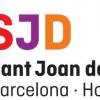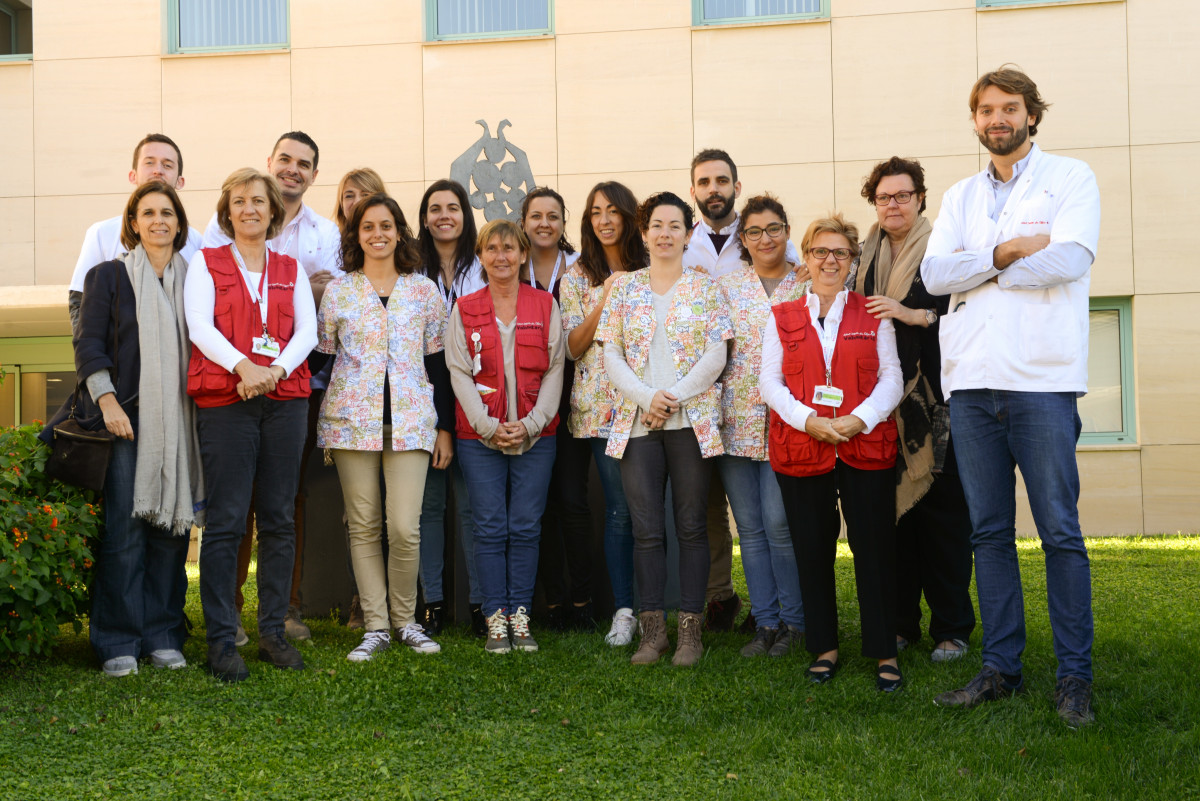
«The role of Pediatric Palliative Care Units is key to give visibility to siblings of sick children inside the family»

S4R: What does it mean to receive palliative care? Which kind of attention do these children receive?
PPCU: Pediatric palliative care is defined by the WHO as the active and total assistance of the child's body, mind and spirit. The objective of this assistance is to improve the care and quality of life of pediatric patients who suffer from a life-threatening or limiting disease with a high probability of death before they reach adulthood. Pediatric palliative care is not offered because the patient is in an end-of-life situation, but they start when the disease presents such a turning point that a real change is detected: the need for a greater follow-up and care (the disease is turning more complex and/or chronic).
S4R: What professional background do the personnel of the Unit have?
PPCU: The added value of the Unit is multidisciplinarity. The team is formed by pediatricians, nurses, psychologists, social workers and spiritual agents and the support of a clerical assistant and a pharmacist. We also have the volunteers, who have specific training in palliative care. Thus, when the follow-up of a new patient begins, all the aspects of his life (emotional, physical, relational, cultural, and spiritual) are taken into account, both during the accompaniment and in the decision-making process. Finally, although they do not belong directly to the Unit, our work would not be possible without those professionals who are closest to these children and their families, such as specialized hospital teams, primary care, social services, health teams of special education schools and teachers and other professionals present day by day in the child’s life. From the Unit we always try to carry out a highly coordinated work.
S4R: What makes the Pediatric Palliative Care Unit of Sant Joan de Déu Children’s Hospital special? Do you use innovative programs or protocols?
PPCU: The PPC Unit of the Order of Sant Joan de Déu in Barcelona was a Spanish pioneer unit when it was created in 1991. Diverse professional profiles, 24-hour care, both hospital and home-based, coordinated networking both with the territory and the community, and the transversality of the joint intervention with other hospital services make the Unit a resource that can address all the needs of patients and families.
The Unit also offers care, bereavement follow-up and facilitates the recreational and relational state of the patients, either through agreements and collaborations with the third sector, or by maintaining a fluid communication with schools or special education centers.
The team is continuously receiving new training to achieve a greater specialization, and member also do research, teaching and dissemination in order to create a palliative care network.
S4R: Is palliative care always applied in the hospital or is it possible to deliver palliative care at home?
PPCU: One of the differences with adult palliative care, among many others, is that child and family care is done by the same team regardless of where they are (hospital, home, residences and schools). Home care is crucial, as it permits to perform the accompaniment to the family and the patient in a safe and reliable environment and is carried out by all the team members. Care becomes more continuous when professionals are able to move to the patient’s home and coordinate themselves personally with health centers workers, social services, schools, early care centers or associations. The team offers 24-hour care and, in case of emergency, there is a nurse and a pediatrician on duty who go to the patient's home if required by the medical situation.
S4R: Does the family also receive special attention during this process?
PPCU: The family is the core of the intervention. A boy or a girl cannot be understood without their parents, caregivers, brothers and sisters. Being the patient a minor, parents are an essential part of the decision-making process and as care providers they must be trained and have valid tools to offer a safe physical and emotional environment. Each family lives their child's disease in a different way.
The Unit staff accompanies the family in the changes and adaptations, trying to strengthen their autonomy in solving problems and satisfying needs without forgetting the socio-cultural specificities each family may have.
S4R: And what about the siblings of sick children? Is there any protocol in these cases?
PPCU: Society understands the parents because the death of a child is described by our culture as an injustice, a pointless fact that causes great suffering. But siblings of sick children often stay in the background, either because there are no specific resources for them, or as a result of the parents' lack of capacity to cope with the illness and death of a child. Siblings of severely ill children live the experience with the same intensity as parents do. The role of pediatric palliative care units is key to give visibility to siblings within the family. Siblings have always been present in our interventions but it is true that, with the increase of resources and more specialized professionals, attention to these children is increasing. The Unit team always explores the presence of siblings, how do parents think that the situation is affecting them and intervenes directly with the children and with the schools (if necessary). The Support Group (starting 3 years ago) has strengthened the presence of siblings because now they can receive specific and helpful resources.
S4R: What short-term changes should be made to improve care for these children and their families?
PPCU: We know that the Department of Health is prioritizing to implement this type of care throughout the region of Catalonia, which is fundamental in order to have improved resources beyond the contributions made by associations and private foundations. Specialized teams are needed to support families and other professionals who also provide care for these families, both at the hospital and at home. Specialized psychological and social attention is also necessary. Well-trained professionals give security and empower the families who, in many cases, have to act as "doctors or nurses" under those circumstances. On the other hand, there are no Hospice-like centers in Spain. These centers are able to give the best care to those children and families who cannot be at home. Hospital Sant Joan de Déu is also pioneering this initiative in the country.
